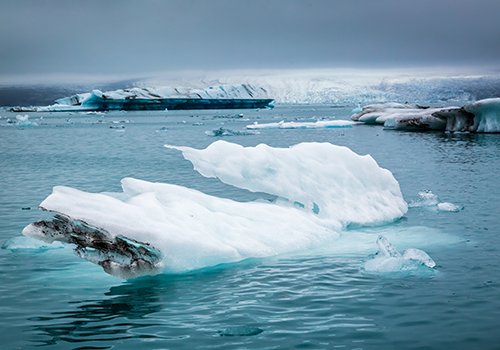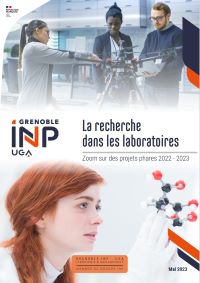The seas and oceans are good indicators of the consequences of global warming: by the evolution of wildlife, but also by the melting of the polar ice caps and pack ice.

The Chorus industrial chair of the Grenoble INP Partnership Foundation, associated with the GIPSA-lab laboratory, offers innovative tools for monitoring these phenomena. "Our research work consists in the observation and study of marine ecosystems by listening to the sounds they produce", explains Cedric Gervaise, co-holder of the chair with Lucia Di Iorio. "It is one of the few methods that allow us to monitor animal populations over very long periods without disturbing them". A monitoring network is being installed in Mediterranean waters, within the framework of a project with the RMC Water Agency. "We will observe the status of the marine ecosystem over several years: the specific diversity, the abundance of soniferous marine species and their activities. If climate change is causing the introduction of new species and the disappearance of others, we will hear it".
The Chair has also obtained an ANR project entitled "GAAP: Glace Arctique par Acoustique Passive", (Arctic Ice through Passive Acoustics) which will begin in January 2016. "The project consists of equipping several kilometres of the Arctic ice shelf with sound recorders whose mission will be to listen both to the production of small icebergs on this edge as well as to any marine fauna". The study of the ‘calving’ of these small icebergs will allow researchers both to monitor the melting of the ice pack and to observe any acceleration of the phenomenon, but will also provide valuable information for navigation on the presence of small icebergs or "growlers", which are invisible to satellites.
Grenoble IN'Press
Contact
- Vice-présidente Recherche
Valérie Perrier
Tél. 04 56 52 86 41 - Vice-présidente Entreprises & Valorisation
Gaëlle Calvary
Tél. 06 31 77 86 71 - Directeur de la DRIVE
Cédric Di Tofano Orlando
Tél. 04 76 57 43 16 - Annuaire





